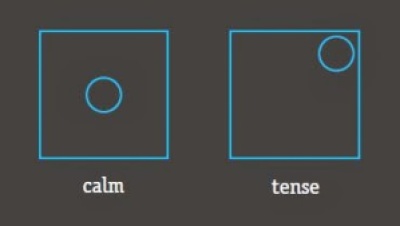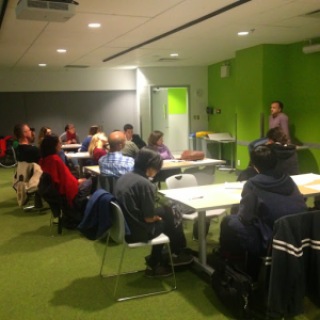On October 8th, Science Online Vancouver offered a workshop on how to improve presentation skills. Science Online Vancouver (@sciovan) is a group of science communication advocates, researchers, students and other scientists who convene online (and in pubs) to discuss science relations and communications. We also discuss fun and excessively nerdy things, like the molar mass of moles.
 |
| source: http://mkweb.bcgsc.ca/ |
The group met at Science World for a brief and engaging talk given by Martin Krzywinski (@MKrzywinski). Martin is a Bioinformatics Group Leader and research scientist at the BC Genome Sciences Centre, located near Cambie and Broadway.
Martin integrates genomics data into stunning visual design projects. His data-representation design work has been featured on the covers of Nature and Science, as well as in a full-page infographic in the New York Times. Martin’s words were succinct, and his delivery was flawless. Here’s a quick review of his presentation on presentations:
Your audience is intelligent, but easily bored
For brevity, I’m going to break one of Martin’s cardinal rules and ‘rely on the slides’ to highlight some of the useful tips he presented:
 |
| Remember: intelligent, but easily bored |
 |
| Ascetic but information-rich design; I understood instantly what this slide meant |
 |
| The focal location affects the audience’s interpretation |
 |
| Empty space is more valuable than visually dense blocks of information |
“Write with your blood”
Topic, Narrative, Delivery
After discussing presentation design, Martin had us break into groups for a slide-design project. We had 15 minutes to choose something from the Wikipedia entry for ‘Canada’ and create a narrative about it in just two hand-drawn slides. My group chose ‘multiculturalism’. Stories are very natural elements in the lives of humans, and we are accustomed to the formula: dilemma, climax, and resolution. We delivered a great presentation because we had been tasked with telling a story, not assembling slides.
Great presentations grip audience members- everyone loves a good story.
